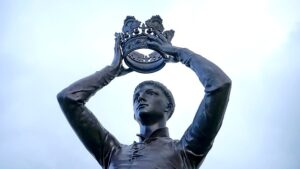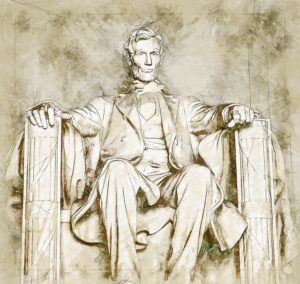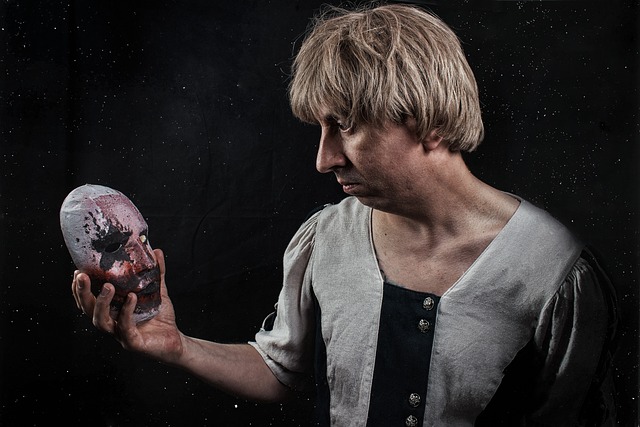What is a tragic hero? People have asked this question for centuries. A tragic hero is a character who has a flaw or weakness that eventually leads to their downfall. They are usually very likable and have many admirable qualities, but they also have one fatal flaw that causes them to make poor decisions and eventually die.
This blog post will discuss what makes a tragic hero and some famous examples from literature and film.
What is a tragic hero, and what are the characteristics of one?
A tragic hero is the main character in a tragedy. This person typically has heroic qualities, such as bravery and courage, but also has a fatal flaw that leads to their downfall. Their actions or choices usually cause the character’s death, which is often very public and violent.
There are several common characteristics in tragic heroes
Often, the tragic hero is someone of high status or standing, such as a king or queen, who falls from grace due to their tragic flaw. This flaw can be anything from hubris to greed to pride.
Tragic heroes usually transform the story and often realize their weaknesses before it’s too late. However, their fatal flaw ultimately leads to their downfall, making for a powerful and memorable story.
Their downfall is often very public and violent. In some cases, it may even be self-inflicted. Nevertheless, the character’s death is typically a result of their tragic flaw and can serve as a warning to others.
How do you identify a tragic hero in literature or film?

There are many examples of tragic heroes throughout history and in literature. Some of the most famous include Julius Ceasar, Brutus from Shakespeare’s Julius Caesar, Oedipus from Sophocles’ play Oedipus Rex, Romeo from Shakespeare’s Romeo and Juliet, and Darth Vader from Star Wars.
While the characteristics of a tragic hero are evident, what qualifies as a tragic flaw can be more difficult to identify
– In Oedipus Rex, Oedipus’s tragic flaw was his pride. He was so confident in himself that he did not listen to anyone else’s advice, leading to his downfall.
– Julius Caesar’s fatal flaw was his arrogance. This arrogance led him to make careless decisions and ignore the advice of those around him. For example, he underestimated the power of the Roman Senate and its ability to overthrow him.
– Darth Vader’s fatal flaw was his fear of losing control. This fear led him to make many bad decisions, such as when he killed the Emperor, even though it was clear that he could have quickly arrested him.
Vader also struggled with his sense of identity. He wanted to be robust and in control, but he also wanted to be loved and accepted, which created many internal conflicts that ultimately led to his downfall.
While a tragic hero is usually of high birth or status, this isn’t always the case. In some stories, the hero may be an everyday person thrust into a situation beyond control. What matters most is that the hero’s downfall is a result of their own choices and not the choices of others.
Here are some of the critical characteristics of a tragic hero
Key features of a tragic hero include being of noble birth, displaying qualities like bravery and honour, and being partially responsible for their downfall.
The tragic hero is not perfect, but they are usually excellent and admirable in some way.
They also have tragic flaws, which is what causes their downfall. This flaw can be hubris, or excessive pride, as in the case of Oedipus Rex.
Another critical characteristic is that the tragic hero must decide with dire consequences. This choice is usually between two equally undesirable options, and there is no way to predict what will happen.
In Oedipus Rex, for example, Oedipus has to choose between leaving Corinth and never seeing his family again or staying and killing the man he believes to be his father.
The tragic hero also typically experiences a reversal of fortune, going from good to foul. In Oedipus Rex, this is when Oedipus learns that he has killed his father and married his mother.
The last key characteristic is that the tragic hero must realize their tragic flaw and accept responsibility for their actions. Oedipus Rex does this when he gouges out his own eyes, realizing that his hubris led to his downfall.
Provide examples of tragic heroes from popular culture and literature
One of the most famous tragic heroes is Hamlet in Shakespeare’s Hamlet. Hamlet is a prince who is tasked with avenging his father’s murder. He feigns madness as part of his plan to kill Claudius but ultimately fails in his mission and dies alongside many others.
Examples of modern-day tragic heroes

– Tony Soprano from the HBO series The Sopranos. Tony Soprano’s biggest flaw was his complete lack of self-awareness. He never understood or acknowledged his weaknesses and vulnerabilities, which ultimately led to his downfall.
– Walter White from the AMC series Breaking Bad. Walter White’s fatal flaw was his blind ambition. He was so desperate to provide for his family that he let his greed get the best of him, and he made some terrible choices that eventually led to his downfall.
– Jay Gatsby from the novel The Great Gatsby. Jay Gatsby’s fatal flaw was his inability to let go of the past. He was so obsessed with reclaiming his lost love, Daisy, that he became a recluse and refused to move on with his life. Being a hermit caused him to become emotionally stunted and drove a wedge between him and the people he cared about most. In the end, this inability to let go led to his tragic death.
– Daisy Buchanan from the novel The Great Gatsby. Daisy Buchanan’s fatal flaw was her love for luxury and status symbols. She was very materialistic and obsessed with keeping up appearances. This led to a lot of reckless spending, which put a lot of stress on her marriage to Jay Gatsby. Her obsession with money also made her very selfish and insensitive to the feelings of others. Ultimately, all these character flaws led to her downfall.
– Tom Buchanan from the novel The Great Gatsby. Tom Buchanan’s fatal flaw was his blindness to the reality of the world around him. He was a chauvinistic, racist man who lived in a bubble of privilege and refused to see the world for what it was, leading to his personal and social downfall.
– Alex DeLarge from the film A Clockwork Orange. Alex DeLarge’s fatal flaw was his psychopathic tendencies. Although he could function in society and maintain a facade of normality, he was always on the verge of slipping back into his old ways and committing atrocious crimes. This made him very unstable and dangerous, ultimately leading to his downfall.
What makes a tragedy, and how does the tragic hero contribute to that element?
A tragedy is a play or story that typically ends in disaster, often involving the protagonist’s death. The tragic hero is a central figure in this disaster, and their actions or choices contribute to the eventual outcome. In some cases, the tragic hero may be aware of their role in the tragedy and still choose to pursue it anyway; in others, they may be completely unaware.
Some characteristics often seen in a tragic hero are hubris, excessive pride, hamartia, or a tragic flaw. These qualities lead the character down a path of self-destruction, despite their best intentions. The tragic hero’s death is usually what brings about the story’s resolution, and their death is often seen as a sacrifice for the greater good.
While tragic heroes are often fictional characters, there have been many real-life figures who have been described as tragic heroes:

Perhaps the most famous example is Abraham Lincoln, assassinated shortly after leading the United States through the Civil War. Lincoln was a tragic hero because he made the ultimate sacrifice for his country and, in doing so, helped to heal the divisions that had torn it apart.
Whether fictional or real, tragic heroes are an enduring fixture in many stories and cultures because they remind us of the potential for greatness that lies within all of us, even as they also remind us of the fragility of life and the inevitability of death.
For example, Julius Caesar was a Roman general and statesman assassinated by his political rivals in 44 BCE.
Like Lincoln, Caesar made the ultimate sacrifice for his country, but unlike Lincoln, he did not live to see the fruit of his labour.
Is the tragic hero always sympathetic, or can they also be villains or anti-heroes?
Yes, absolutely. One of the drama’s most interesting and complex aspects is exploring the gray area between good and evil, where it’s not always clear who is the true “hero” and who is “the villain.” This grey area makes characters like Heath Ledger’s Joker in The Dark Knight so compelling—he’s a classic tragic hero who also happens to be a cold-blooded killer.
So yes, tragic heroes can also be villains or anti-heroes, adding an extra layer of complexity and interest to their characters.
While there are many different examples of tragic heroes throughout history and literature, they typically have certain characteristics in common.
Once again, here are the key characteristics of the tragic hero:
They are of noble birth or have heroic qualities:
This can make them seem larger than life and give them a sense of destiny.
They have a tragic flaw:
This is often what leads to their downfall, and it is something that they are seemingly unaware of.
They display a sense of irony:
This is when the character thinks they are doing one thing, but in reality, they are doing the opposite.
They go through a transformation:
This can be from good to bad or vice versa. The character usually starts off as being good, but their tragic flaw leads them down a dark path.
They meet their demise:
This is often a result of their tragic flaw and can be seen as having a higher purpose.
How has the definition of tragedy and the role of the tragic hero changed over time?
In Ancient Greece, tragedy was a form of entertainment that consisted of stories about heroes who had been brought down by their flaws. The purpose of these plays was to teach people about what could happen if they made similar mistakes.
In more modern times, the definition of tragedy has changed to include stories about regular people who are faced with difficult circumstances. The purpose of these stories is to show how even the most ordinary person can overcome adversity.
Despite these changes, the tragic hero remains an important figure in literature and storytelling because the tragic hero embodies what it means to be human. We all have flaws and make mistakes, but the tragic hero shows us that they can rise above these things.
Conclusion
A tragic hero is the protagonist of a story who suffers from a flaw that ultimately leads to their downfall. This figure can be found in many stories and films, as they are often used to create a sense of sympathy for the character while also providing an example of what not to do.
While tragic heroes are typically viewed as sympathetic figures, it is essential to note that they can also be villains or anti-heroes. Ultimately, what makes a tragedy a tragedy is the presence of a tragic hero whose flaws contribute to the unfolding of events.
If you’re working on your first novel and are looking for more help with your writing, please check out my other articles at https://ullahakanson.com/blog/
Thanks for reading!
Ulla

